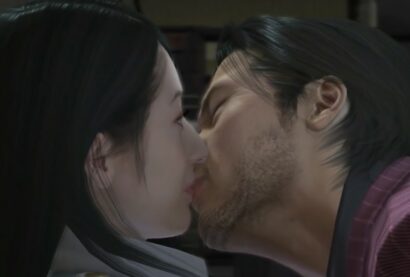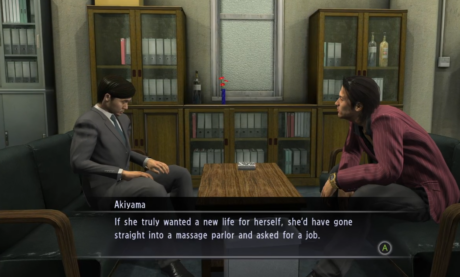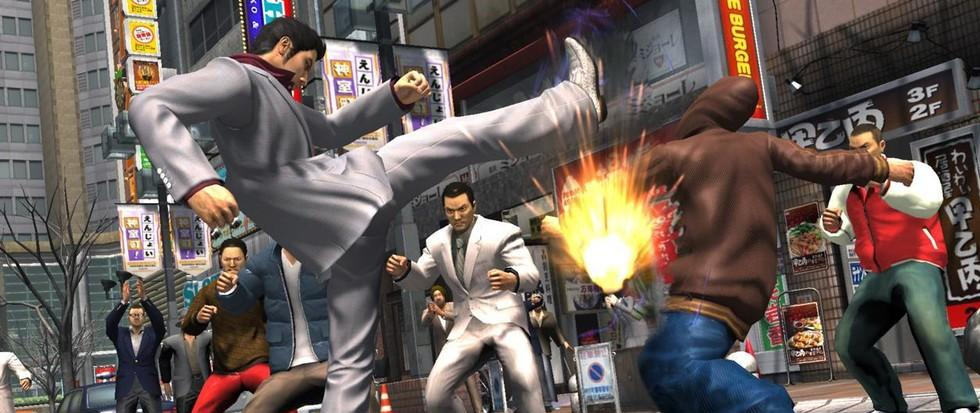
I Used to Love Yakuza’s Shun Akiyama, Until I Realized How Much He Hates Women
I’ve had a long and roundabout journey with the Yakuza games; I started with 0 and Kiwami like everybody else, but then somehow found myself finishing 7 before Kiwami 2. Last year, after finally beating Judgment and falling back in love with the series, I blazed through the other titles, having last conquered Infinite Wealth.
It was, to be sure, an interesting way to have engaged with the series. My beloved best friend, to whom I actually introduced the titles but who played them all with much more speed than I did, had imbued me with all sorts of preconceptions about games 3 through 6 before I’d played a single second of either. The Yakuza fandom I’d seen online had done the same.
Some of said preconceptions centered around a certain man: one Shun Akiyama, the first new protagonist we meet in Yakuza 4. He’s one of the most adored characters in franchise history, or so say the polls. He’s the owner of Sky Finance and the “Lifeline of Kamurocho”, a merciful loan shark who will lend any amount of money with zero interest to those he judges trustworthy. He’s suave, charming, thoughtful, and can kick any bastard’s teeth in.
So why do I hate him so much now?
You see, it wasn’t always like this. If I scroll back to the messages I sent my best friend when I started 4, a lot of them are me riding the hype – complimenting his good looks, enjoying his business model, even comparing him to one of my favorite characters from another game. Excluding the single message where I point out his penchant for making women work in the more softcore side of the sex industry for potential loans, I was smitten as could be.
The underside only started making itself visible as I got closer to the end of that gameplay segment. At a certain point, in keeping with that plot point mentioned above, he suddenly kisses that woman he’d been working to the bone in his own club for what could have been free labor. (Somewhere after that, he apologetically admits he only had her do it because she was hot.)

She reciprocates, claiming kissing him “felt right”. It did little to stave off my anger. I felt his behavior was borderline predatory – a work arrangement this flimsy, under such delicate circumstances, had me fuming.
This was when the bottom first fell out for me. After the Akiyama Event Horizon, most anything he did and said to and about women made me unbelievably angry (even if for a while I insisted, “I like him, I just don’t like the misogyny”). A shining example is his “endearing” behavior around his secretary Hana-chan. He loves to slack off and leave all the work to her – ha-ha, so silly. What a girlboss and malewife relationship, am I right? (No. Try being an assumed woman living with a man who loves not doing his part. I promise it’s every bit as awful as it sounds.)
And it gets worse. Boy, does it. Next up on the list is the crowning achievement of misogyny: an infamous substory called “The Apprentice”. In it, Akiyama teaches a potential hire about how things go in Sky Finance. The client who serves as a field lesson is Noriko-san, mother of a small boy, who wants money so they can both escape her abusive husband.
Akiyama tasks her with finding work in Kamurocho within three hours. She obliges. While she’s away, the husband, a day drinker, shows up at the agency’s doorstep and gets the crap beaten out of him. When Noriko-san returns she hasn’t found any job; too old for part-time, no job openings at restaurants.
Shun Akiyama next has the gall to ask this abused woman if she tried the red light district. Says she’s attractive enough to land a job with a massage parlor, for example. She says no – she’s not comfortable working in the sex industry. He asks her to leave. His apprentice is shocked by such harshness.
What does he say to that?

His fixation on lending money to the desperate speaks to a core aspect of his backstory: he used to be a big-shot banker, but a set-up cost him his entire livelihood. He was only plucked away from homelessness when a certain incident in ‘05 made ten billion yen literally rain out of the night sky. Some clever daytrading with what he grabbed made him build his fortune back, and now he’s here, hoping to act as that “Sky” for others.
As you can see, however, his meritocratic worldview is heavily tainted by his own severely low view of women. The darling Lifeline of Kamurocho is, in fact, incredibly self-righteous – it shows the most when he puts sex work on a pedestal, as the main way a woman can prove how determined she is to change her life. Sex work is work, of course; to Akiyama, however, it may as well be the only work for the ladies.
Most of the gnarly stuff about his character (which is never really challenged) has been toned down over the years. The Yakuza 4 remaster excludes bits where he calls trans women slurs and makes fun of “unattractive” Hana-chan for worrying about being raped. In Yakuza 5, he returns with mostly subtextual misogyny – he’s the knight in shining armor that makes the female protagonist’s story move forward, and even verbally berates her for trying to do so on her own at a certain point.
I still can’t help but boggle at his popularity. A friend of mine said she really only likes him because he’s hot; at least that I can understand. A common request I see online is for an Akiyama spin-off title – maybe there they can actually make him face his own gross practices.
———
Hiero de Lima is a Brazilian game journalist and critic obsessed with narrative analysis who will accept any amount of jank if the story’s good. You can find their games writing on Backloggd (short-form) and Medium (long-form), and their bilingual silliness is on Bluesky.





